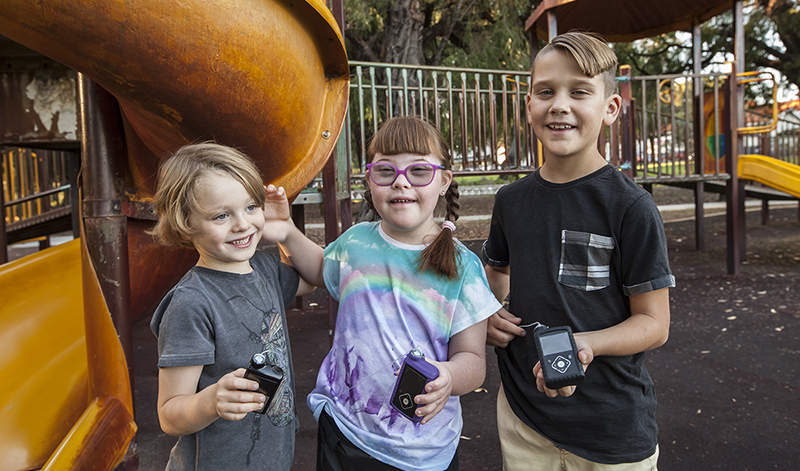Search
Research
Early environmental determinants of pancreatic islet autoimmunity: a pregnancy to early life cohort study in children at risk of type 1 diabetesThis study is looking for the causes of type 1 diabetes, so that we can find ways to prevent it.

News & Events
Five things that may surprise you about type 1 diabetesProfessor Liz Davis reveals five things you might not know about type 1 diabetes.
Research
Validation of Physical Activity Assessment in Type 1 Diabetes – an Essential Step to Incorporating Systematic Measurement of Activity as the Standard of Care in YouthLiz Tim Davis Jones MBBS FRACP PhD MBBS DCH FRACP MD Co-director of Children’s Diabetes Centre Co-head, Diabetes and Obesity Research Co-director of
Research
Cost-effectiveness analysis of routine screening using massively parallel sequencing for maturity-onset diabetes of the young in a pediatric diabetes cohortRoutine MPS screening for Maturity-onset diabetes of the young in the pediatric population with diabetes could reduce health system costs and improve patient QoL
Research
The use of continuous glucose monitoring with remote monitoring improves psychosocial measures in parents of children with type 1 diabetes: A randomized crossover trialCGM with remote monitoring was found to improve multiple measures of quality of life, reduce family stress, and improve parental sleep
Research
Concurrent developmental course of sleep problems and emotional/behavioral problems in childhood and adolescence as reflected by the dysregulation profileFindings provide evidence for a strong association in the development of sleep problems and difficulties of dysregulation with emotion, cognition, and aggression
Research
Season, terrestrial ultraviolet radiation, and markers of glucose metabolism in children living in Perth, Western AustraliaIncreased safe sun exposure in winter therefore represents a plausible means of reducing fasting blood sugar in children with obesity
Research
Epigenome-wide meta-analysis of DNA methylation and childhood asthmaNovel loci differentially methylated in newborns represent potential biomarkers of risk of asthma by school age
Research
Variation in nutrition education practices in SWEET pediatric diabetes centers-an international comparisonNutrition education is central to pediatric type 1 diabetes management. Dietary management guidelines for type 1 diabetes are evidence based, but implementation may be challenging and inconsistent.
Research
Acute hyperglycaemia does not have a consistent adverse effect on exercise performance in recreationally active young people with type 1 diabetes: a randomised crossover in-clinic studyIn individuals with type 1 diabetes, chronic hyperglycaemia impairs aerobic fitness. However, the effect of acute marked hyperglycaemia on aerobic fitness is unclear, and the impact of insulin level has not been examined. In this study, we explored if acute hyperglycaemia with higher or low insulin levels affects [Formula: see text] and other exercise performance indicators in individuals with type 1 diabetes.
